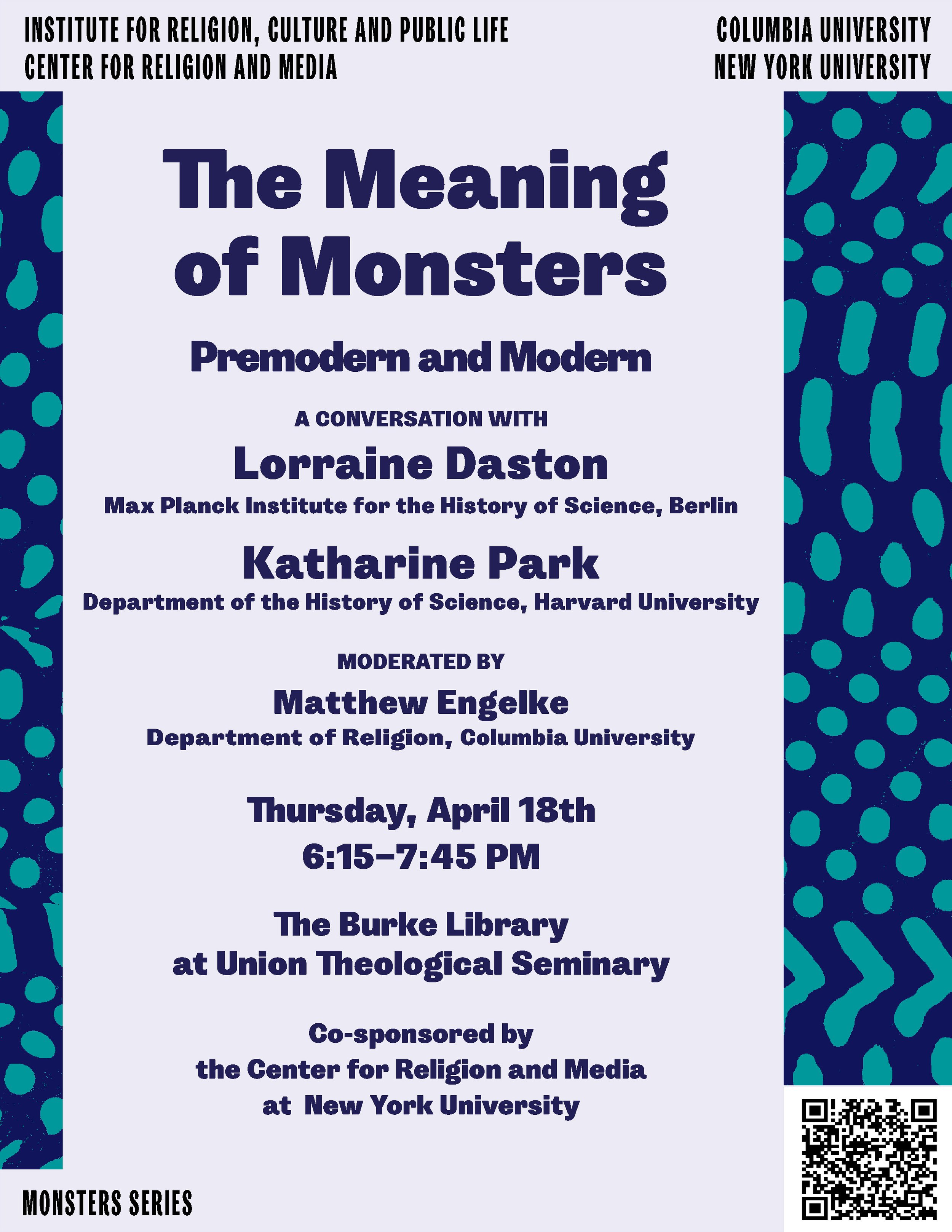Speakers: Lorraine Daston (Max Planck Institute for the History of Science, Berlin) and Katharine Park (Department of the History of Science, Harvard University). Moderated by Matthew Engelke (Department of Religion, Columbia University).
Co-sponsor: Center for Religion and Media at NYU
Location: The Burke Library, Union Theological Seminary
Monsters have always overflowed with meaning, crying out for interpretation. But some periods become obsessed with monsters: early modern Europe was one such monster moment, and the contemporary United States seems to be another. In the early modern period monsters could be individuals—people or animals with congenital anomalies—or self-reproducing species. In both cases their differences from their non-monstrous counterparts were easily visible, evoking emotions ranging from horror or terror to wonder, and the frameworks for interpreting them were primarily religious; they could be signs of divine disapproval or emblems of God’s power and creativity. In contrast, modern monsters are almost always species: humanoid ones like zombies and vampires, who may not be immediately recognizable and who evoke emotions of fear or horror, and non-human species, who can be benign. Moralized interpretations have largely replaced theological ones. These premodern/ modern contrasts and connections are the starting point for thinking about how monsters magnetize attention and what the current monster moment says about who we are now.
Free and open to the public
Please register in advance to reserve your spot

